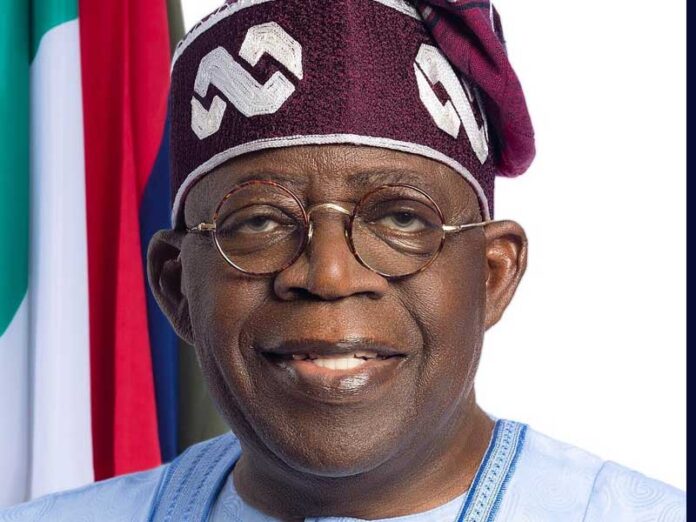*Tertiary institutions not grounds for recruitment of extremist groups, Kaduna gov tells students
CHIGOZIE AMADI
President Bola Tinubu yesterday reiterated his administration’s commitment to tackling all forms of banditry, kidnapping, and other related criminality in the country.
This is as Kaduna State Governor, Senator Uba Sani, cautioned against rising extremism in tertiary institutions in Nigeria, saying that they have become veritable recruitment grounds for extremist groups and criminal organisations.
Tinubu stated this yesterday in Katsina State at the ninth Convocation ceremony of the Federal University, Dutsinma.
The president, however, said tackling insecurity was not the responsibility of the government alone, just as citizens have a role to play by providing information to security operatives that would aid the fight.
e president, who was represented by the Vice Chancellor of Federal University, Dutste, Jigawa State, Prof. Abdulkarim Mohammed, called on youths to leverage the Nigerian Loan Scheme, which over N70 billion has been disbursed to that effect.
Tinubu reminded Nigerians that governance is not about the presidency or those in places of leadership but about Nigeria and Nigerians, who will make the country better.
“I want to assure all Nigerians that the government is fully committed to combat and defeat all acts of terrorism, kidnapping, banditry, and other criminal activities in Nigeria.
“However, security is a collective responsibility. I urge all Nigerians to join hands with the government by giving them relevant information to security agents on suspicious persons, miscreants and other criminal elements”, according to President Tinubu.
The president also called on convocating students to be good ambassadors of the institution and the country at large, wherever they fund themselves.
He called on university lecturers to live up to expectations in grooming future leaders of the nation and charged them to take advantage of modern teaching methods using Information Communication Technology.
Earlier on his part, the Vice Chancellor of Federal University Dutsinma, Prof. Armaya’u Bichi, highlighted the institution’s challenges, including insecurity, which has been the major problem of the university.
According to Bichi, “As we are aware, the security situation in and around Dutsin-Ma in recent times has made us abandon the main campus and crowd ourselves at the take-off campus of the university, which is grossly inadequate in structures and facilities to accommodate the 14 faculties and a large number of staff and students.
Also speaking, FUDMA Chancellor and Chairman of Convocation, King Jaja of Opobo, Dandeson Douglas, said the institution is not resting on its oars to improve the Internally Generated Revenue.
“The university has established a Consultancy Unit, Micro Finance Bank, Pure Water Factory, Staff Primary and Secondary Schools, and Printing Press to boost our IGR. As the Chancellor of this great university, I will continue to engage the Federal Government, Philanthropic organizations, stakeholders, Private Organisations, NGOs, businessmen, and the Alumni of the university to solicit support to meet the needs of the university”.
Douglas further called on the attention of the President on lingering insecurity bedevilling the students’ community.
“I will be failing in my responsibility as the Chancellor of this great university if I do not draw your attention to the security challenges bedevilling the university, which has made the conduct of any activity at the main campus impossible. All activities of the university, including this Convocation Ceremony, are at the take-off campus, which is grossly inadequate in both structures and facilities for staff and students,” he said.
FUDMA graduated a total of 297 postgraduate students. Out of which, 18 have Ph.D, 226 have Masters, 53 have Professional Diplomas and have PGD.
Out of 4282 undergraduate students, 44 have first class, and 872 have second Class Upper. 2273 have second class lower, 1076 have third class, and 17 have pass degrees.
Also speaking at the event, Kaduna State Governor, Senator Sani, has cautioned against rising extremism in tertiary institutions in Nigeria, saying that they have become veritable recruitment grounds for extremist groups and criminal organisations.
Sani, who was represented by the state’s Commissioner of Education, Prof. Muhammad Sani Bello, noted that the issue of radicalisation by extremist ideologies on campus was exacerbated by unemployment, poverty, and lack of opportunities for many students.
The governor cited the recent case of a student of FUDMA, who was arrested by the police with ammunition intended for criminal activities.
He said: “A recent incident at FUDMA serves as a troubling example of this trend. A student was arrested by the police and found in possession of ammunition intended for criminal activities. This incident underscores the increasing risk of students being drawn into violence, radical ideologies, and illegal activities.
“Such developments not only endanger the lives of the students involved but also threaten the integrity of the institution and the safety of the entire academic community. The vulnerability of students to radicalisation is a direct result of their socio-economic challenges, including frustration with the political system, disillusionment with job prospects, and exposure to extremist ideologies.
“Many tertiary institutions lack the infrastructure and technology needed to create a safe and secure learning environment. Poor security measures on campuses, inadequate facilities, and a lack of surveillance technology have made schools easy targets for bandits, kidnappers, and other criminal elements. While insurgency and terrorism, particularly from groups like Boko Haram and ISWAP, are more concentrated in the northeast of Nigeria, the effects of their activities ripple across the country.
“The presence of these groups has destabilised the region, leading to the displacement of millions and the destruction of infrastructure, including educational institutions. Insecurity surrounding tertiary institutions has also resulted in brain drain, a phenomenon in which highly qualified academics leave the country or withdraw from service due to fears for their safety. At FUDMA, several senior professors have withdrawn their services from the university, citing the high-risk environment as a factor for their decision to either relocate to safer parts of the country or seek opportunities abroad,” the governor explained.























